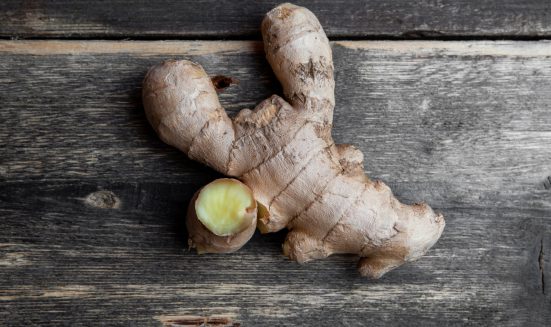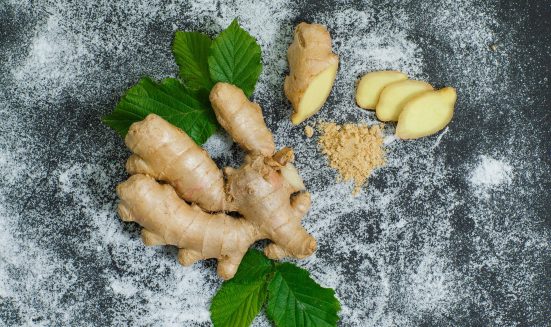Common Ginger is a widely used herbaceous perennial, growing up to one meter tall, primarily for medicinal purposes such as relieving digestive issues, coughs, and colds. It contains bioactive compounds like gingerols, shogaols, and paradols, known for their antioxidant, anti-inflammatory, and anticancer properties. Gingerols, especially 6-gingerol, are the main constituents in fresh ginger, while shogaols, formed during drying or cooking, enhance bioavailability and medicinal effects. More popular than Z. zerumbet, ginger is valued for its health benefits, including reducing oxidative stress and inflammation.


Ginger is a powerful medicinal plant known for its anti-inflammatory, antioxidant, and immune-boosting properties. The active compounds, particularly gingerol and shogaol, contribute to its effectiveness in reducing inflammation, supporting digestion, and enhancing heart health.
This plant has been traditionally used to relieve nausea, promote respiratory health, and aid in weight management. Its antimicrobial and antiviral effects make it beneficial for the immune system, while its bioactive compounds may also help in cancer prevention and brain function improvement. Additionally, ginger supports liver health and helps regulate blood sugar levels, making it a well-rounded natural remedy for overall well-being.
Ginger contains gingerol, which helps reduce inflammation and may alleviate conditions like arthritis and muscle soreness.
Traditionally used to relieve nausea, indigestion, and bloating, making it beneficial for overall gut health.
Rich in powerful antioxidants like gingerols and shogaols, which protect against oxidative stress and may lower the risk of chronic diseases.
May help lower blood sugar, reduce LDL (“bad” cholesterol), and lower blood pressure, supporting cardiovascular health.
If you have any question, don’t hesitate to contact us!
Copyright © 2024 Sow & Tell Indonesia | All Rights Reserved | Terms and Conditions